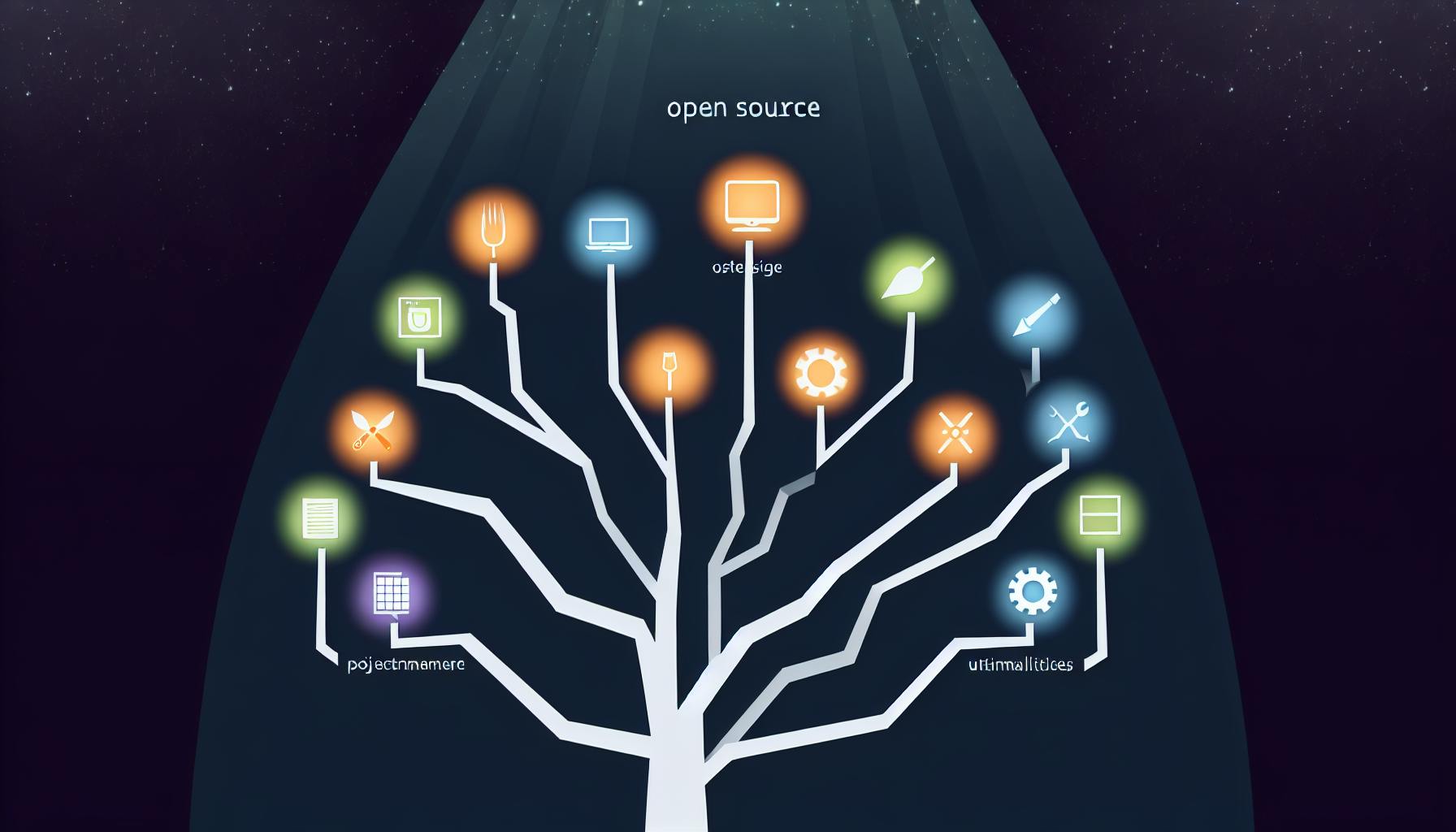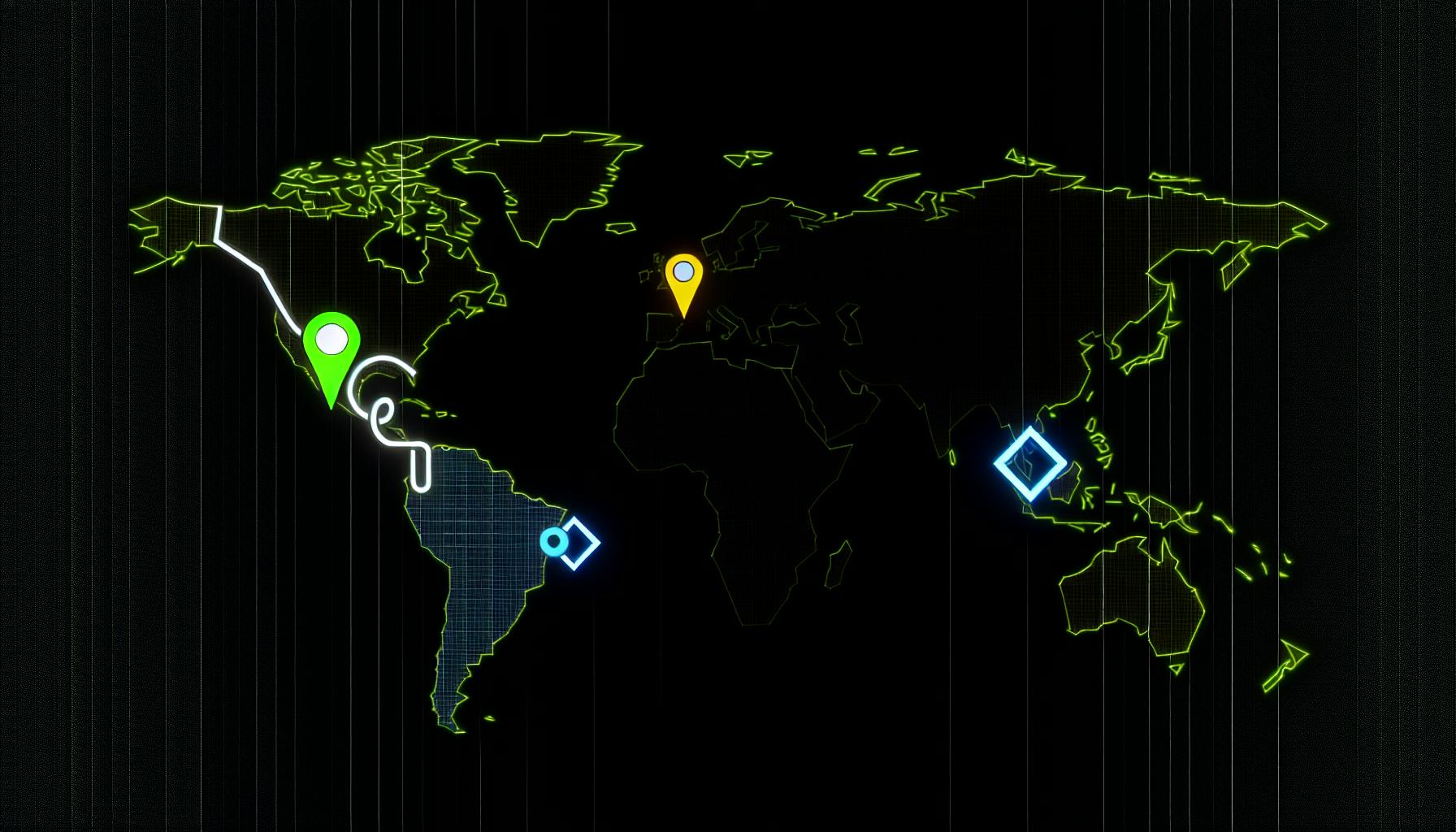Finding the right point-of-sale (POS) system is critical for small businesses in retail and restaurants.
Luckily, open source POS software provides customizable features at an affordable price.
This article will compare open source vs proprietary POS systems, highlight the benefits of open source POS, and review some of the best open source POS software options for small businesses.
Introduction to Open Source POS Systems for Small Business
Open source POS systems are software solutions for point-of-sale and retail management where the source code is openly available for customization and community contribution. Compared to proprietary POS systems from major vendors, open source options offer unique advantages for small businesses on flexibility, costs, and feature expansion.
Understanding Open Source POS Software with Source Code
Open source POS software has source code that is licensed under OSS (Open Source Software) licenses like GPLv3, MIT, etc. This allows developers to freely view, modify, enhance the code to suit custom needs. Key implications:
- Customizable - Businesses can customize features, interfaces, reports per needs without vendor dependency.
- Flexible Licensing - OSS licenses allow free use without per-user fees. Revenue models involve support contracts, hosting, etc.
- Community-driven - Developers collaborate to add features, fix bugs. This allows faster innovation.
Popular open source POS projects include Floreant, UniCenta, Lemon POS, and many others.
Advantages of Open Source POS for Small Business
Open source POS systems offer these unique advantages for small businesses:
- Lower Cost - Avoid recurring license fees per user. Only pay for support.
- No Vendor Lock-in - Customize without dependency on vendor roadmaps and timelines.
- Better Security - Public code reviews improve security. OSS licenses mandate disclosure.
- Grow Features - Community adds integrations, reports, etc. Support emerging technologies quickly.
Comparing Open Source and Proprietary POS Systems
| Feature | Open Source POS | Proprietary POS |
|---|---|---|
| Initial Cost | Free | Expensive licenses |
| Customization | Highly Flexible | Rigid limitations |
| Hardware Support | Varies across projects | Generally robust |
| Scalability | Depends on project community | Scales well with vendor team |
| Support Levels | Community forums | Official vendor SLAs |
Proprietary POS systems offer robust enterprise features out of the box. But open source alternatives can match or exceed proprietary capability over time - with community collaboration on GitHub, custom development, and support services.
Exploring Best Open Source POS Systems
We dive into some of the most popular open source POS system software options for small businesses to consider.
Floreant POS: A Tailored Open Source POS for Restaurants
Floreant POS is an open source Java-based system designed specifically for restaurants, bars, and retail stores. As an open source POS system, it offers the key features needed for order management, payment processing, and reporting without the high costs of proprietary solutions.
Some standout qualities of Floreant POS include:
- Customizable order screens and menu layouts
- Table management and reservation capabilities
- Robust reporting on sales, products, customers, and more
- Integration with receipt printers, cash drawers, and barcode scanners
- Support for touchscreen displays and mobile devices
For restaurant owners looking for an affordable POS tailored to their industry, Floreant POS provides an open source option to run their operations efficiently. The community behind the project is also active in adding new features and fixes. Overall, Floreant POS offers a solid foundation to build a restaurant POS system.
Unicenta: A Versatile Open Source POS Windows and Cloud Solution
Unicenta POS delivers an open source option accessible across devices with versions for Windows, Linux and the cloud. With releases available under the GPLv3 license, Unicenta POS offers a modular architecture to adapt to evolving business needs.
Key advantages of Unicenta POS include:
- Cross-platform support including Windows, Linux and browser-based
- Modular design for customizing features and user interface
- Scales from single store to multi-site deployments
- Integrations with hardware like displays, printers, scanners and more
- Touchscreen friendly interface localized for 75+ languages
- Role-based access control for employees and managers
For retailers aiming for versatility across devices and locations, Unicenta POS provides an open source POS system with extensive hardware compatibility and internationalization.
Chromis POS: A User-Friendly Open Source POS App for Retail
Chromis POS focuses on usability, performance and stability as a complete open source POS solution. With its touchscreen friendly UI localized for over 20 languages, Chromis POS aims to serve retailers internationally.
Notable features provided in Chromis POS include:
- Graphical user interface optimized for touchscreen displays
- Supports over 300 receipt and label printers, barcode scanners, customer displays and more
- Advanced promotion and loyalty tools like gift cards and points programs
- Detailed sales analytics and inventory management
- Multi-store stock management with inter-store inventory transfers
- Available under the GNU GPL3 open source license
For retail stores prioritizing a smooth checkout process, Chromis POS delivers an open source POS app placing usability at the forefront.
Odoo POS: An Integrated Open Source ERP and POS System
Odoo POS offers a unique value as an open source POS integrated with a full enterprise resource planning (ERP) system and other business applications. This allows retailers to unify their POS with tools for inventory, accounting, CRM, eCommerce and more.
As an open source solution, Odoo POS provides:
- Centralized database connecting POS with other business systems
- Modular apps for POS, inventory, accounting, project management and more
- Intuitive touchscreen interface for cashiers to quickly process sales
- Built-in customer relationship management (CRM) features
- Available via on-premise or Odoo.sh cloud hosting
For a unified business management ecosystem, Odoo POS delivers an open source option linking point of sale with broader operational systems.
SambaPOS: Customizable Open Source POS Restaurant Software
SambaPOS delivers enhanced customization options as an open source POS system tailored for restaurants. PHP-based and available under the GNU GPL3 license, SambaPOS places an emphasis on configurability to meet unique needs.
Customization strengths provided by SambaPOS include:
- User interface modifications without coding knowledge
- Rule-based menu options to set dynamic prices, limits, discounts and more
- Custom fields and unlimited data tables for transaction records
- Modular architecture supporting custom extensions and plugins
- Source code available for developers to deeply customize features
For restaurant owners seeking a personalized POS experience, SambaPOS brings an open source solution offering easy customizations.
sbb-itb-9c854a5
Technical Insights into Open Source POS Github Projects
Open source point of sale (POS) systems available on GitHub provide businesses with flexible, customizable solutions often at a lower cost than proprietary systems. However, understanding the technical considerations around open source is key.
Examining Popular POS Projects on GitHub
GitHub hosts a vibrant developer community contributing to various open source POS projects like Floreant, UniCenta, and SambaPOS. Businesses can tap into this ecosystem to find systems tailored to their needs or even get involved in development. Assessing the developer activity levels on GitHub helps gauge project health. Mature projects tend to have regular code commits, bug fixes, feature additions and community discussions.
Hardware and OS Compatibility for Tablet POS Systems
Tablet-based POS solutions need to ensure compatibility across devices and operating systems. Open source projects that support Android, iOS and Windows provide flexibility. Printer and barcode scanner support is also vital. Business should evaluate technical documentation to confirm compatibility with their existing or planned hardware infrastructure before adoption.
Ensuring Reliability and Security in Open Source POS Software
While open source POS software provides tremendous flexibility, businesses need to assess system stability, data integrity, backup support and encryption mechanisms before deployment. Reviewing developer documentation, community forums and conducting small-scale pilot testing helps ascertain production-grade reliability.
Licensing Considerations: GPL vs LGPL vs MIT
Open source licenses like GPL, LGPL and MIT have different usage clauses that impact how businesses can use, modify and distribute POS system software. GPL has strong copyleft provisions requiring public distribution of any modifications while MIT permits private modifications. Evaluating license types is an important but often overlooked technical consideration.
Customization, Integration and Support for Open Source POS Systems
Open source POS systems offer abundant flexibility for customization but finding help with setup and modifications can seem daunting. Here we outline the customization options available as well as resources for support.
Extending Functionality with Plugins and APIs
Most open source POS systems have plugin architectures and developer APIs that allow adding new features like:
- Loyalty and rewards programs
- Accounting software integrations
- Custom reports and analytics
- New payment gateways
For example, FloreantPOS offers a plugin SDK that enables developers to extend core functionality while Unicenta has modules for ERP, warehouse management, purchase ordering and more. With access to source code, integrations are easier compared to proprietary systems.
Finding Help: Community Support and Professional Services
While open source offers flexibility, finding help with setup and modifications is crucial. Resources include:
- Official documentation - Most projects provide setup guides, user manuals, developer docs and wikis. These cover basics but may lack specific use case details.
- Community forums and chat - The projects' community channels like forums, Discord and IRC chats are great places to find help from active users and developers. These can provide tips not found in formal documentation.
- Professional support services - For small businesses lacking dedicated developer teams, paid professional support from service providers may be needed for customizations and ensuring smooth deployments.
Cloud-Based POS System Options for Small Businesses
For small businesses, managing own servers may be challenging. In such cases, using a hosted cloud-based open source POS system can simplify setup without needing local infrastructure.
Some options like Odoo, FloreantPOS and Chromis POS work with hosting providers offering pre-configured on-demand instances. Benefits include automated deployments, backups, scaling and management without needing an ops team.
Integrating POS with SCM and ERP for Comprehensive Business Solutions
Open source POS systems can integrate with supply chain and inventory management (SCM) as well as broader enterprise resource planning (ERP) software for comprehensive solutions:
- Odoo - Has built-in modules for POS, accounting, inventory, manufacturing, HR, project management and more. The integrated apps enable streamlined workflows and single source of truth across business units.
- Apache OFBiz - Its SOA architecture allows integrating with SCM, ERP, CRM and other systems via APIs. Enables connecting POS to back-office apps for unified data.
- Other apps - POS systems like Floreant, Unicenta and Chromis POS can integrate with Odoo, ERPNext, Compiere and other ERP software. Integration helps manage inventory, purchasing, manufacturing, accounting, HR and more.
The flexibility to connect POS to other line-of-business applications is a key benefit of open source solutions for holistic business process automation.
Conclusion: Embracing Open Source POS for Retail and Restaurant Success
In closing, we revisit the major benefits open source offers for small business POS needs and where these systems excel the most.
Why Open Source POS is a Game-Changer for Small Businesses
Open source POS systems provide several key advantages for small businesses:
- Customization flexibility: Open source software can be customized to meet specific business needs, unlike proprietary systems. POS features, interfaces, reports, and integrations can all be tailored.
- Ownership of data: With open source solutions, businesses retain full control and ownership of customer and transaction data, unlike SaaS systems. This ensures continuity of operations.
- Lower costs: No recurring license fees or forced upgrades. Open source POS software is free to install and use. Costs relate more to hardware, support, or customizations.
- Community-driven innovation: Active developer communities continuously add features and improvements. This creates advanced POS systems that evolve with small business needs.
With benefits like endless customization, data control, lower TCO, and constant innovation through collaboration, open source POS presents a very compelling case as an alternative to rigid proprietary systems.
Future of Open Source POS: Trends and Predictions
For niche markets like restaurants, pop-up shops, food trucks, and small retail businesses, open source POS system software provides unmatched agility and custom-fit capabilities difficult for proprietary POS vendors to match.
Some predictions for open source POS system trends:
- Wider adoption across small businesses as awareness grows
- Integration with more niche industry tools like restaurant management or inventory systems
- Embrace of mobile and cloud solutions while retaining offline functionality
- Continual advancement of features like loyalty programs, customized reporting, and end-user self-servicing through open source community collaboration
Open source POS systems certainly seem poised for even greater reach and capabilities in the future as they tap into the power of developer communities focused on creating best-in-class software.


